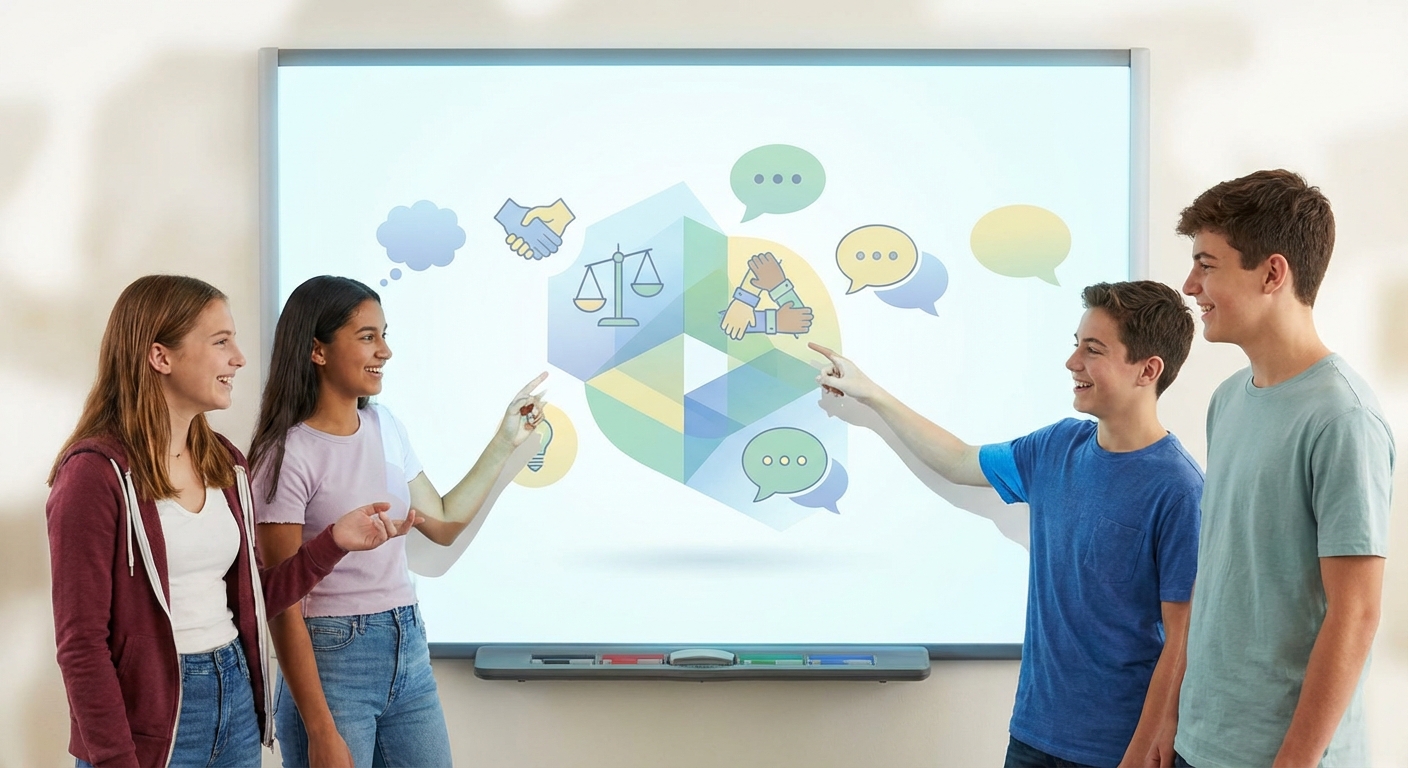Ethics
What Is Ethics?
Ethics is the part of philosophy that asks how we should act. It looks at right and wrong, good and bad, and why we make the choices we do. Think of it as a guidebook for behavior, but instead of rules written by a teacher, the guide comes from thinking, discussion, and experience. When we talk about ethics, we’re trying to understand what makes actions fair, kind, or responsible.
Key Ethical Questions
| Question | Why It Matters |
|---|---|
| Is It Okay To Tell A Lie To Protect Someone’s Feelings? | This asks us to weigh honesty against compassion. |
| Should We Help Strangers In Need, Even If It Costs Us Time Or Money? | It explores the balance between self‑interest and caring for others. |
| What Responsibilities Do We Have To The Environment? | It connects personal choices to the health of the planet. |
| When Do Rules Become Unfair? | It encourages us to think about justice and equality. |
These questions don’t have one‑size‑fits‑all answers. They invite discussion, and the best answers often depend on the situation and the values we hold.
How to Make Ethical Decisions
- Identify The Facts – Gather all the information you can. Knowing what actually happened helps you see the whole picture.
- Consider The People Involved – Who will be affected? Think about friends, family, strangers, and even future generations.
- Reflect On Values – Which principles matter most to you? Honesty, respect, fairness, and caring are common values.
- Explore Alternatives – List possible actions and think about the outcomes of each.
- Choose And Act – Pick the option that best matches your values and the facts.
- Review The Result – After acting, ask yourself if the outcome feels right. If not, you can learn for next time.
Using this step‑by‑step approach helps turn vague feelings into clear choices.
Why Ethics Matters
Understanding ethics helps us become better members of our community. It teaches us to think before we act, to respect different points of view, and to stand up for what we believe is right. When we practice ethical thinking, we build trust with friends, family, and even strangers. Trust makes teamwork smoother, schools safer, and societies stronger.
Ethics also prepares us for future challenges—whether it’s deciding how to use new technology, protecting the planet, or speaking out against injustice. By learning to ask the right questions now, we’re ready to shape a fairer world later.
